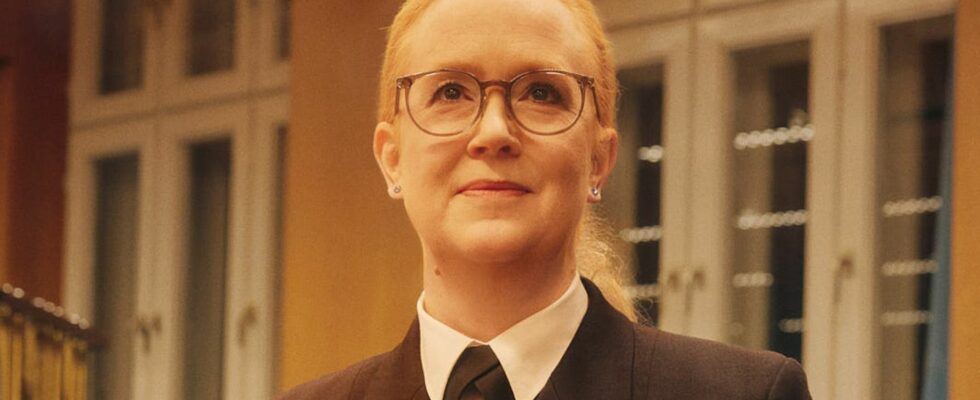Women in Leadership
Photo project provides insights into the world of female managers
Inga Hilsberg, lieutenant captain and chief conductor of the Kiel Marine Music Corps
© Christine Lipski/Women in Leadership
Photographer Christine Lipski portrays women in leading positions with her photo and film project “Women in Leadership”. And their exhibition also addresses the challenges they face professionally and privately.
Having stories of women in society Christine Lipski has always moved and fascinated. The portrait and fashion photographer quickly found a focus in her work – female self-determination. Since then, she has been making a statement for equality and female power in society with thematic portrait series.
For her photo and film project “Women in Leadership”, Christine Lipski and Laura Müller, who accompanied the whole thing on film, traveled to Germany for over a year to visit 30 women in their work environment. The resulting portraits and interviews show the uniqueness, personality, strength and vulnerability of the women and provide insights into their worlds of thought.
16 images
At their exhibition, which will take place for the first time in March 2024 in the Qvartr Gallery was shown in Hamburg, questions about the topic were posted. Christine Lipski was concerned with these questions during her interview journey with the women. Now we gave it to the photographer herself.
BRIGITTE: Is power good or bad?
Christine Lipski: Power is an aspect that is part of a leadership position. Personally, I think that power can be a good thing and I agree with Tatjana Trömner-Gelbe, who advises:
More courage for power.
It is crucial that power is used correctly and that power is used positively. There shouldn’t be a direct association with abuse, because of course you can set many remarkable things in motion with power. It was also important to us to show that the words “power” and “woman” are rarely put in context, and here we should break through stereotypical thinking. Power is good when used in the best possible way by the right person and bad when abused by the wrong person.
Do you say the CEO?
I simply say CEO and depending on whether it is a woman or a man, “the” or “the” is added. However, I also speak a lot of English and tend to say “the CEO”.
What is the Thomas cycle?
The Thomas cycle describes a pattern of action: people prefer to surround themselves with people who are similar to them. In the corporate world, this means that people prefer to hire their “own reflection” (Thomas prefers to hire Thomas), i.e. people with similar training and origins. This can lead to a homogeneous employee landscape and less diversity. A cycle that should be broken, because homogeneous board compositions or corporate cultures are one-sided, but companies benefit from diversity.
The path to a leadership position is not easy and mutual support among women is essential.
How does the system change you?
When I interviewed Katja Kraus for Women in Leadership, she talked about how women should change systems and not the other way around. I agree with her! Systems that are not very progressive and diverse can change and influence you if you work within them. Depending on the industry, it may be that as a woman you need a lot of resilience in order not to allow yourself to be changed and adapted to your own ideas.
Are you changing the system?
One goal is definitely to change certain systems in the world of work and encourage new thinking structures. For example, as long as there is no equality in the management ranks, it should be discussed. But changing a system is difficult and requires patience and assertiveness – how many decades have people been fighting for equality? When I learn about women’s perspectives in our book about our “Women in Leadership” project, I find reinforcement and inspiration for my own actions.
How can women support each other to become leaders?
Networking is an essential aspect. It is important to exchange ideas openly and listen to each other. With the project we were also able to establish new contacts among women who share similar experiences. The path to a leadership position is not easy and mutual support is essential. I see it like Dr. Katrin Suder from our audio interview who said:
We as women need to stop speaking badly about other women. Right now.
